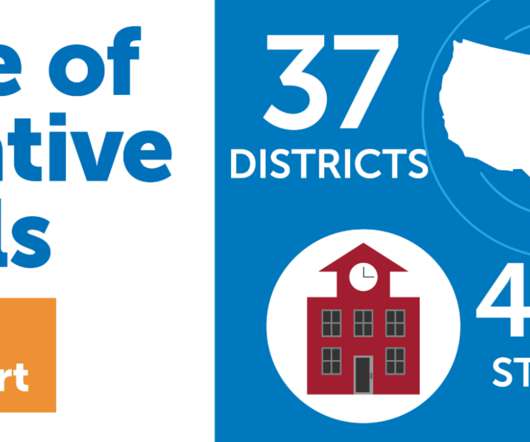Announcing the 2021-2022 League of Innovative Schools Cohort
Digital Promise
SEPTEMBER 30, 2021
Located in Mississippi, Columbus Municipal School District is committed to advancing advocacy of learners’ parents. In April 2021, the district launched monthly parent advocacy meetings focused on restorative justice, literacy, and college and career readiness. Their trainings and materials were used across the country.















Let's personalize your content